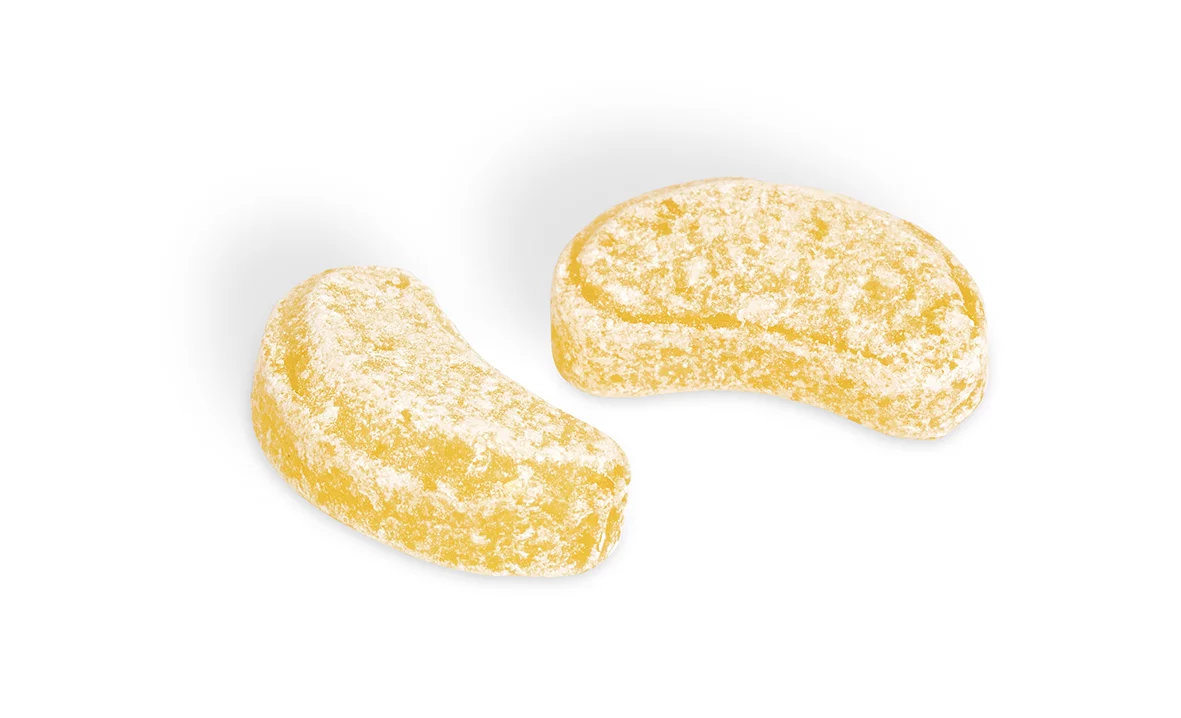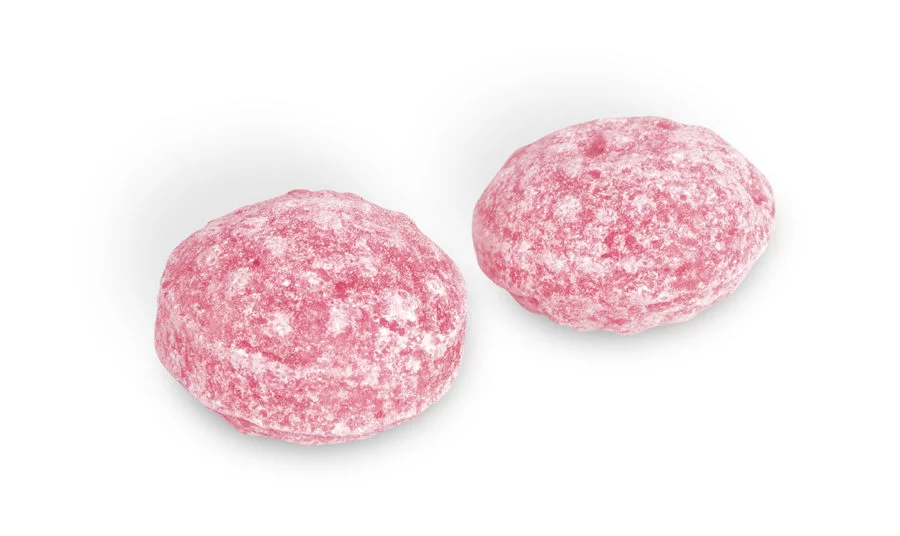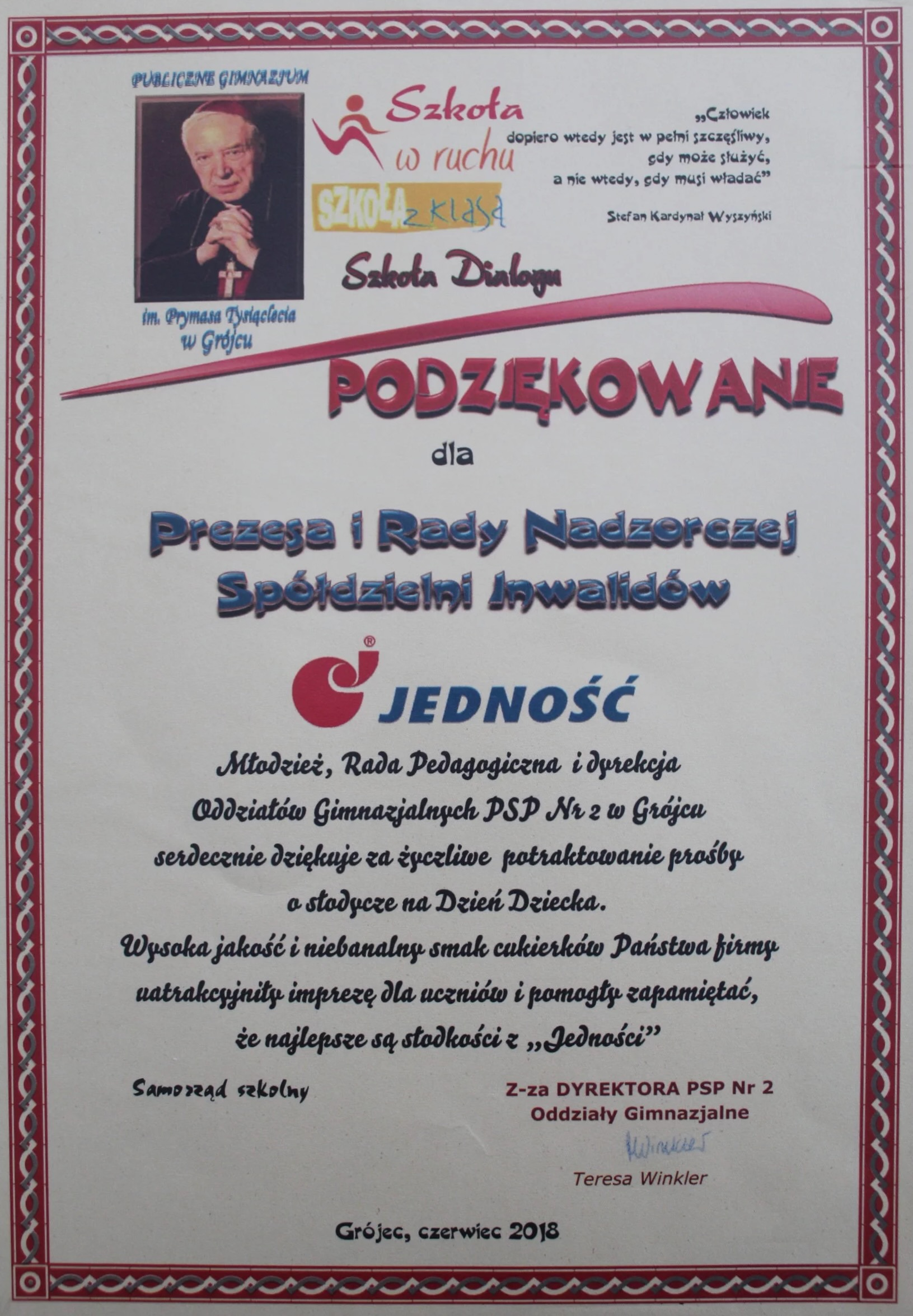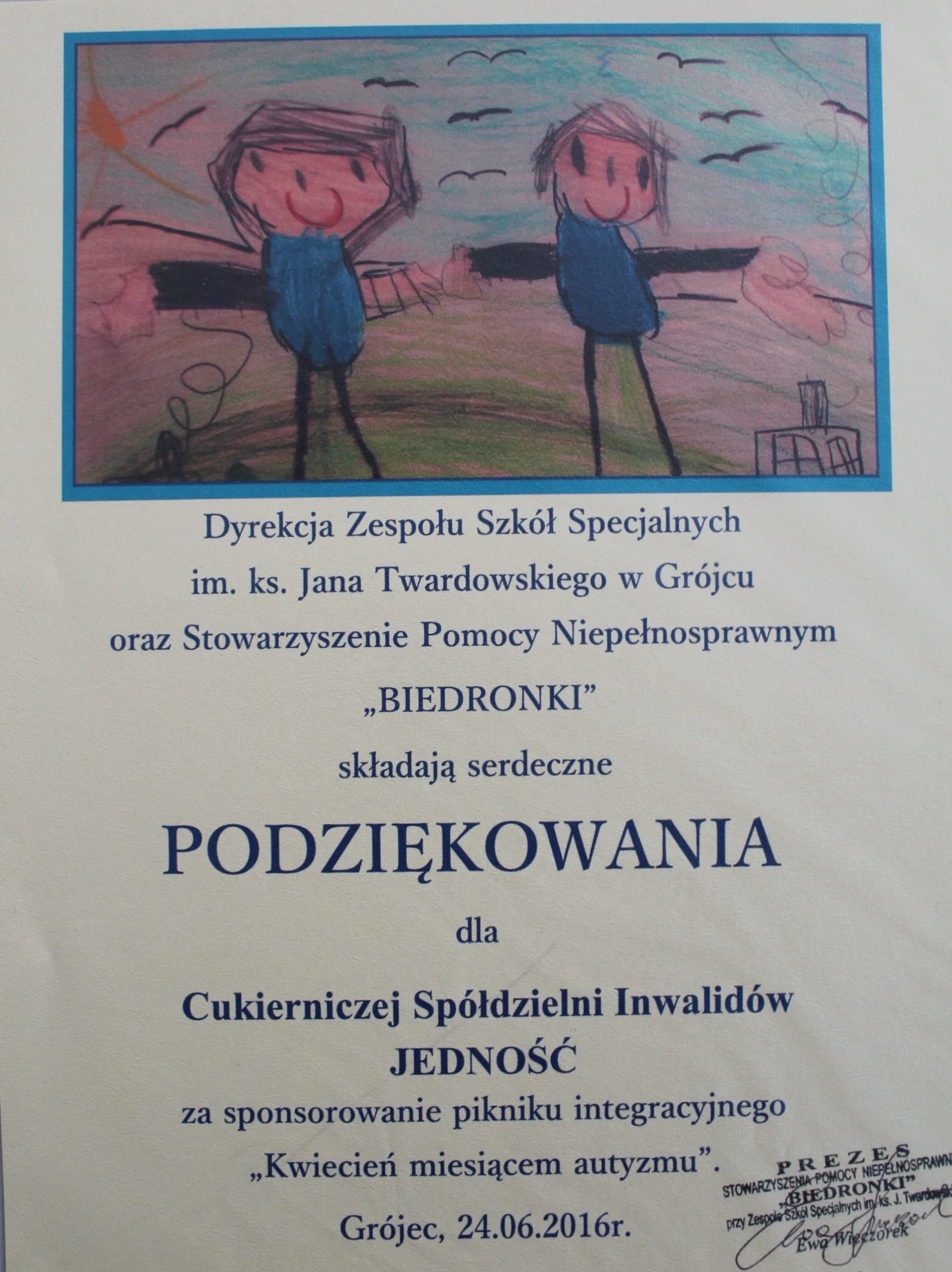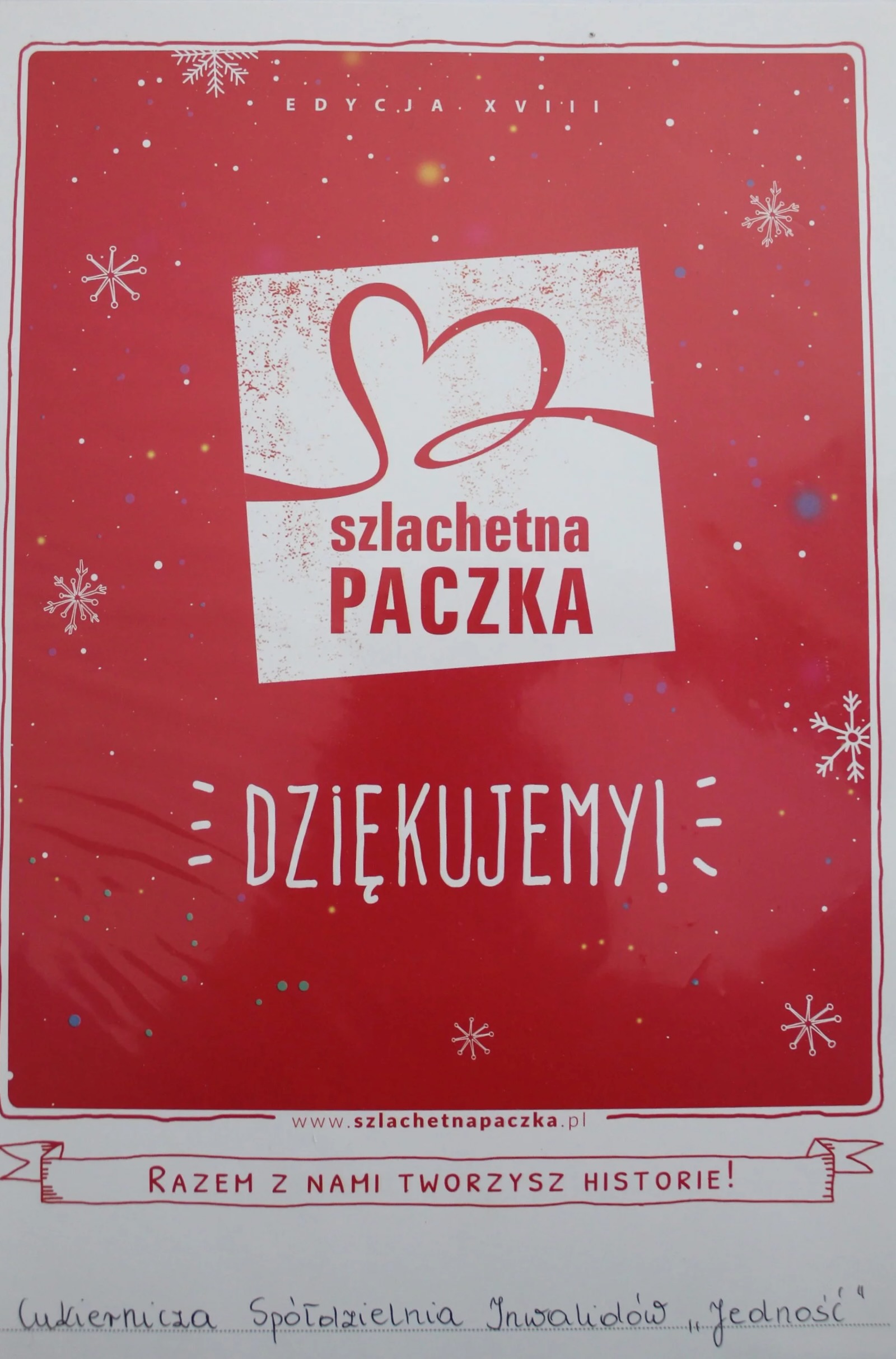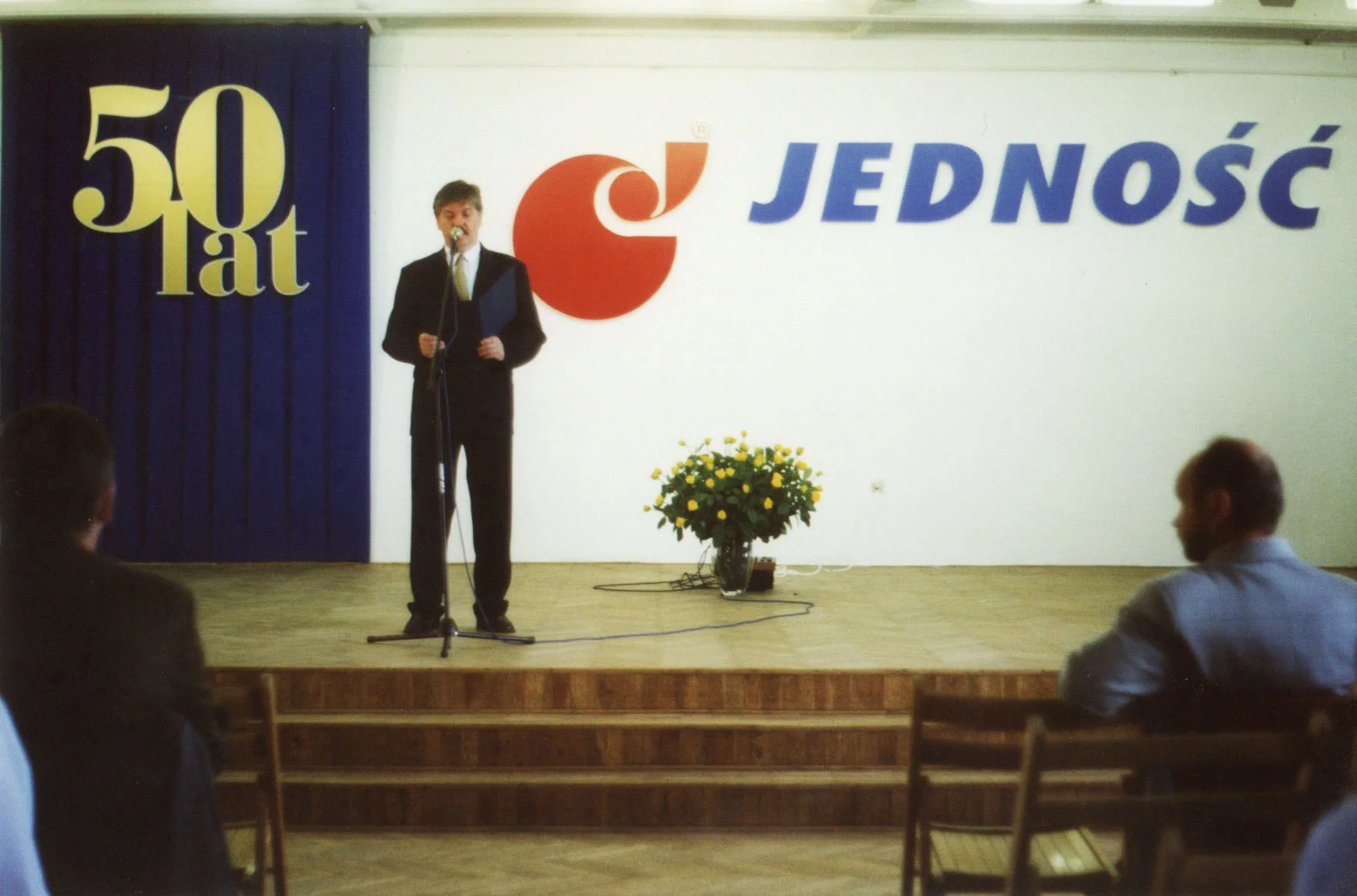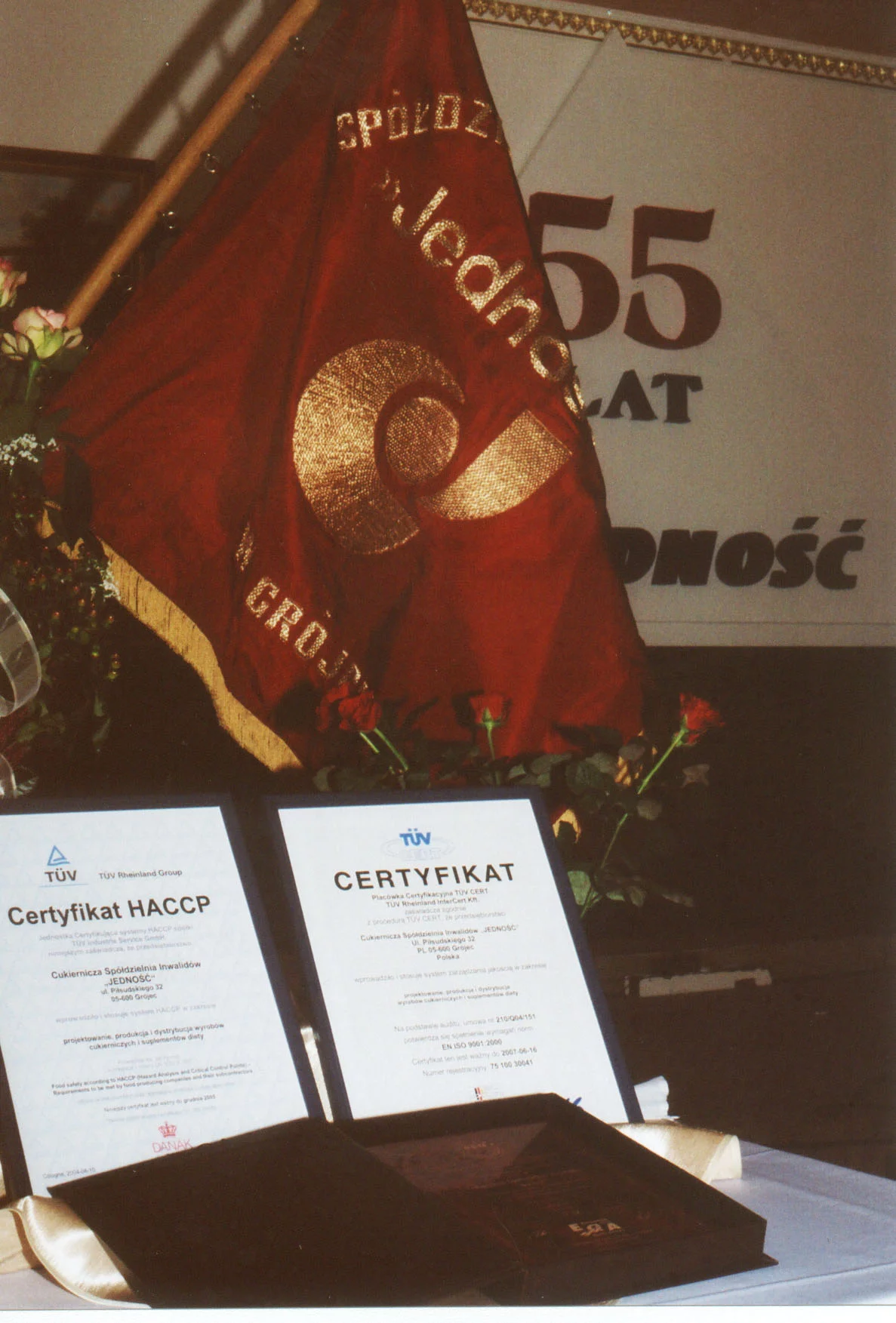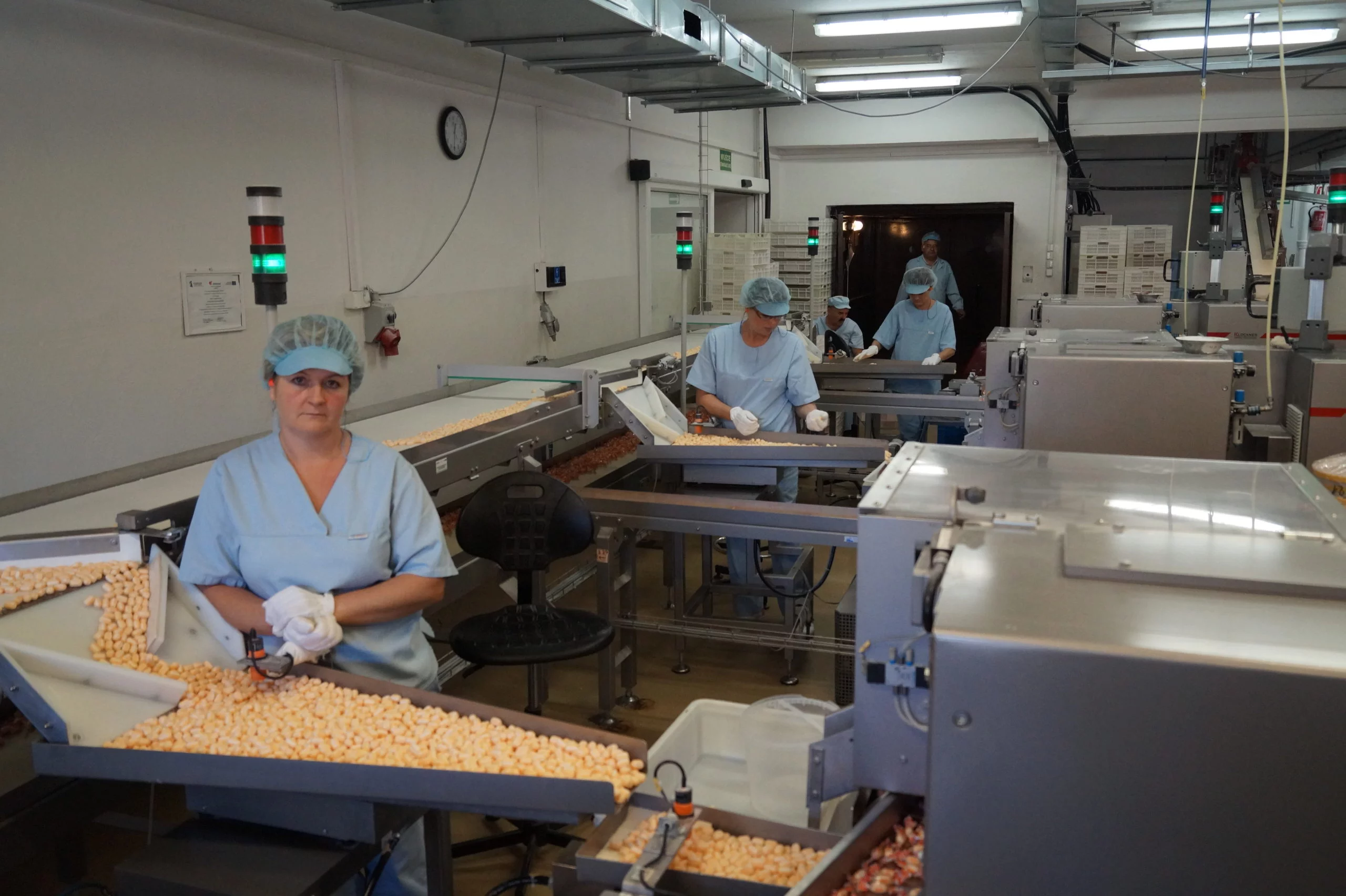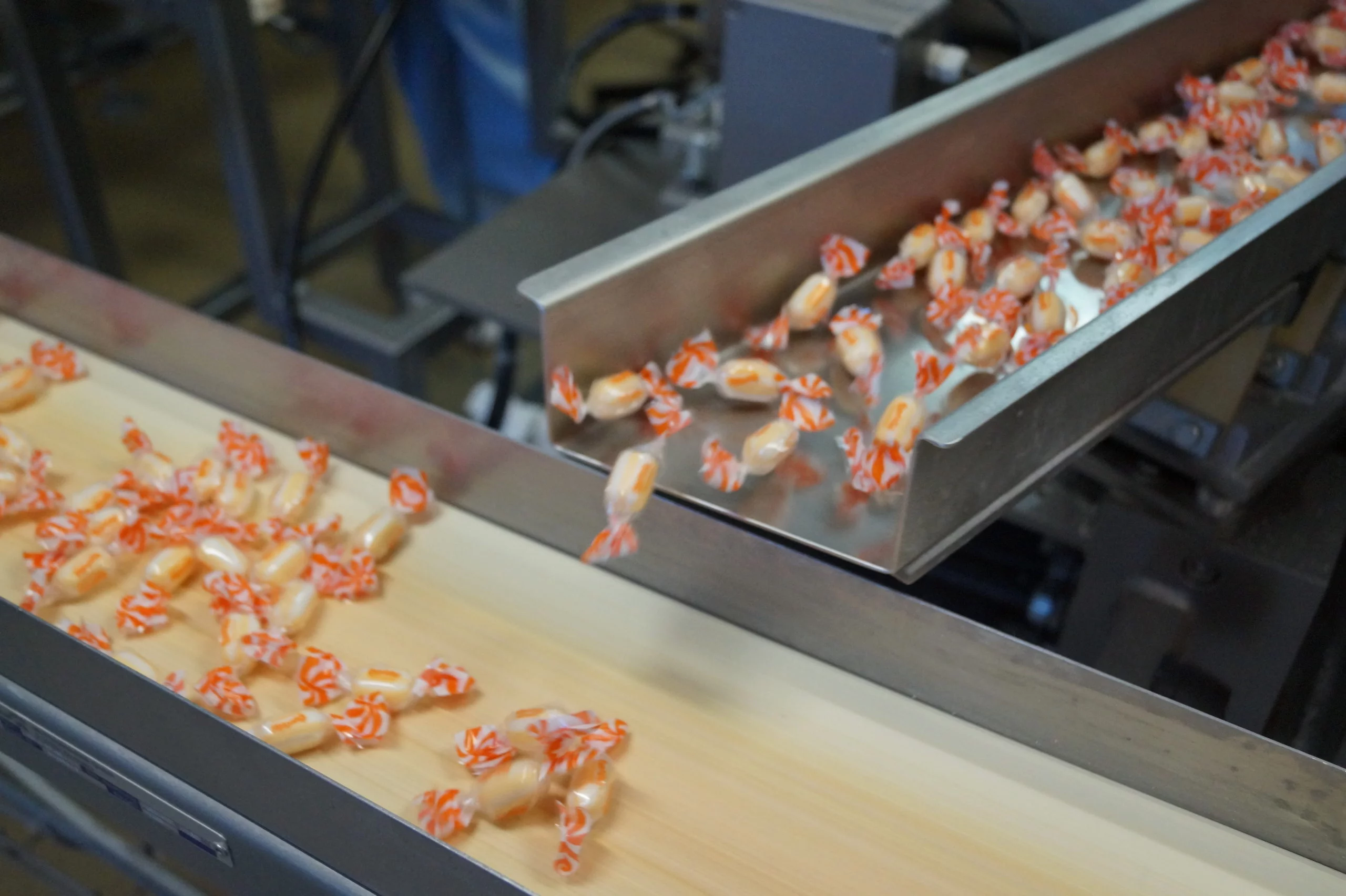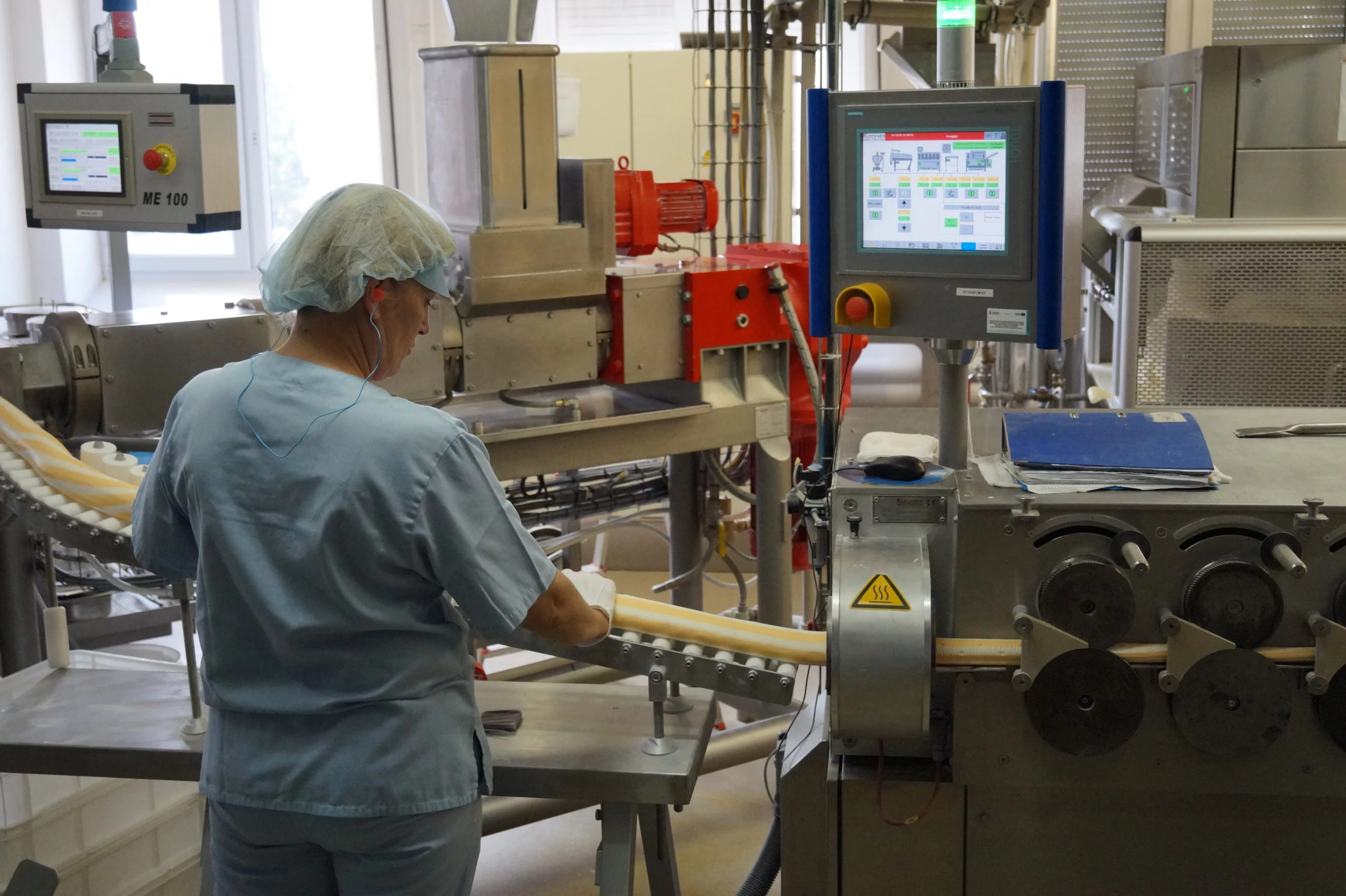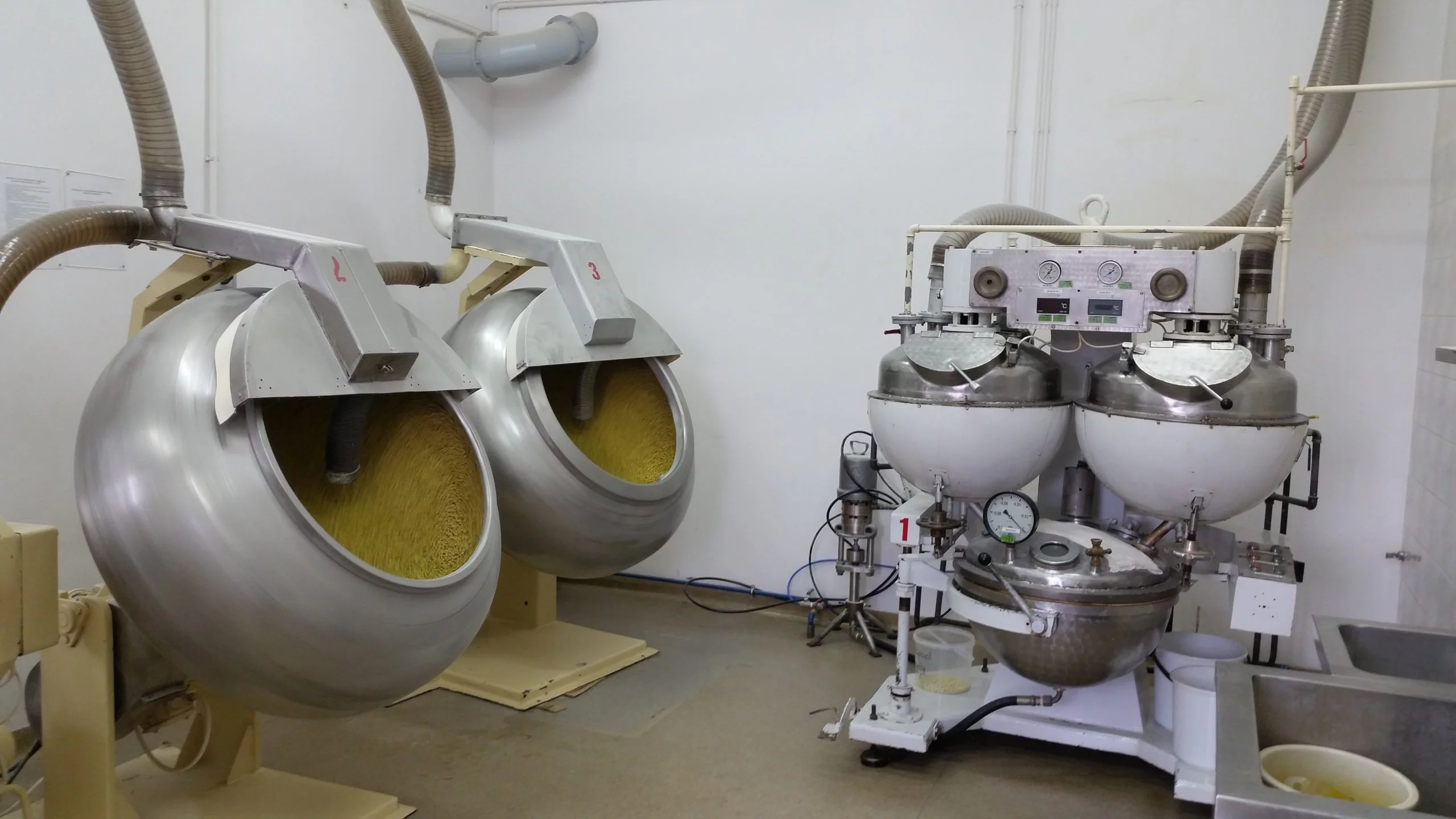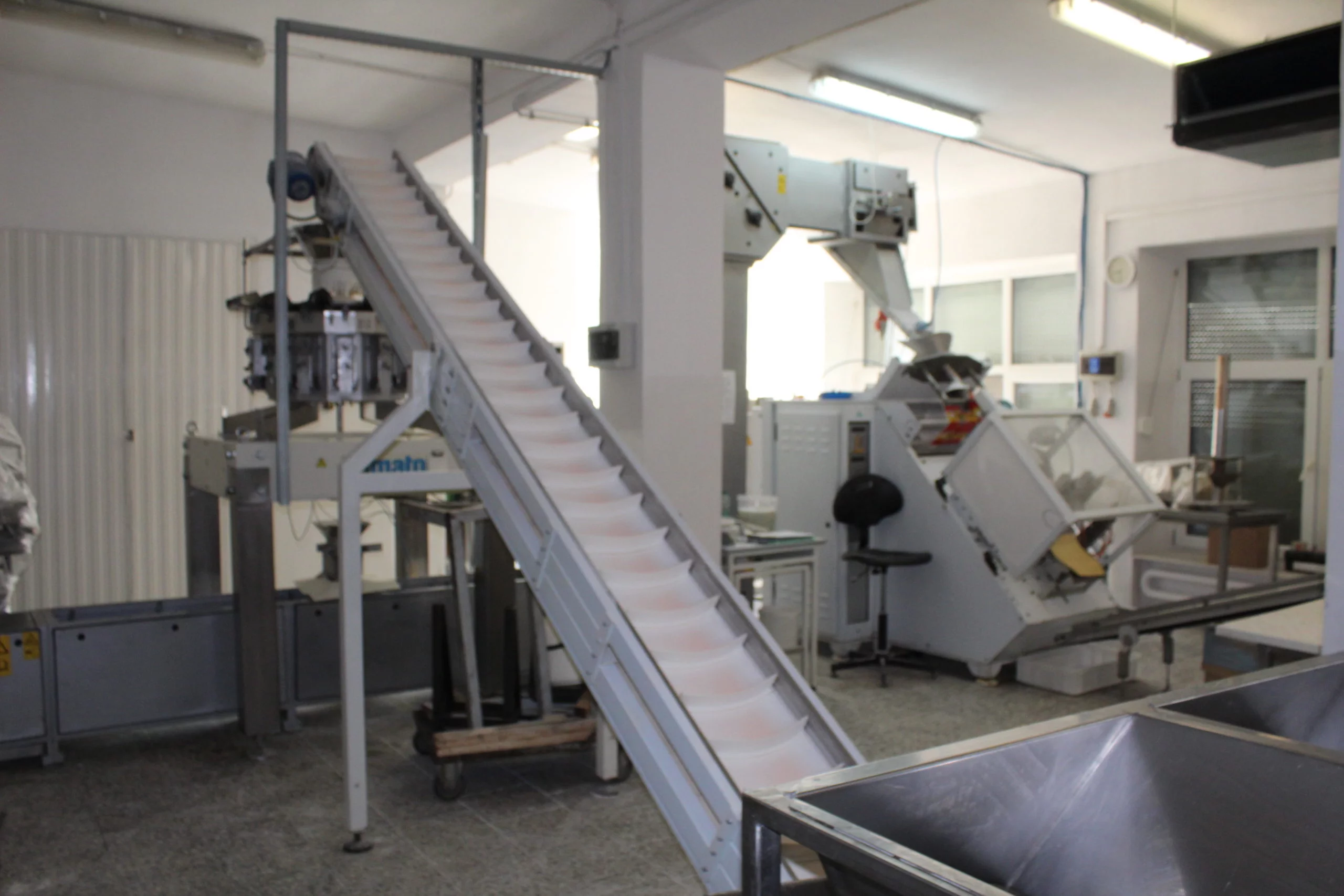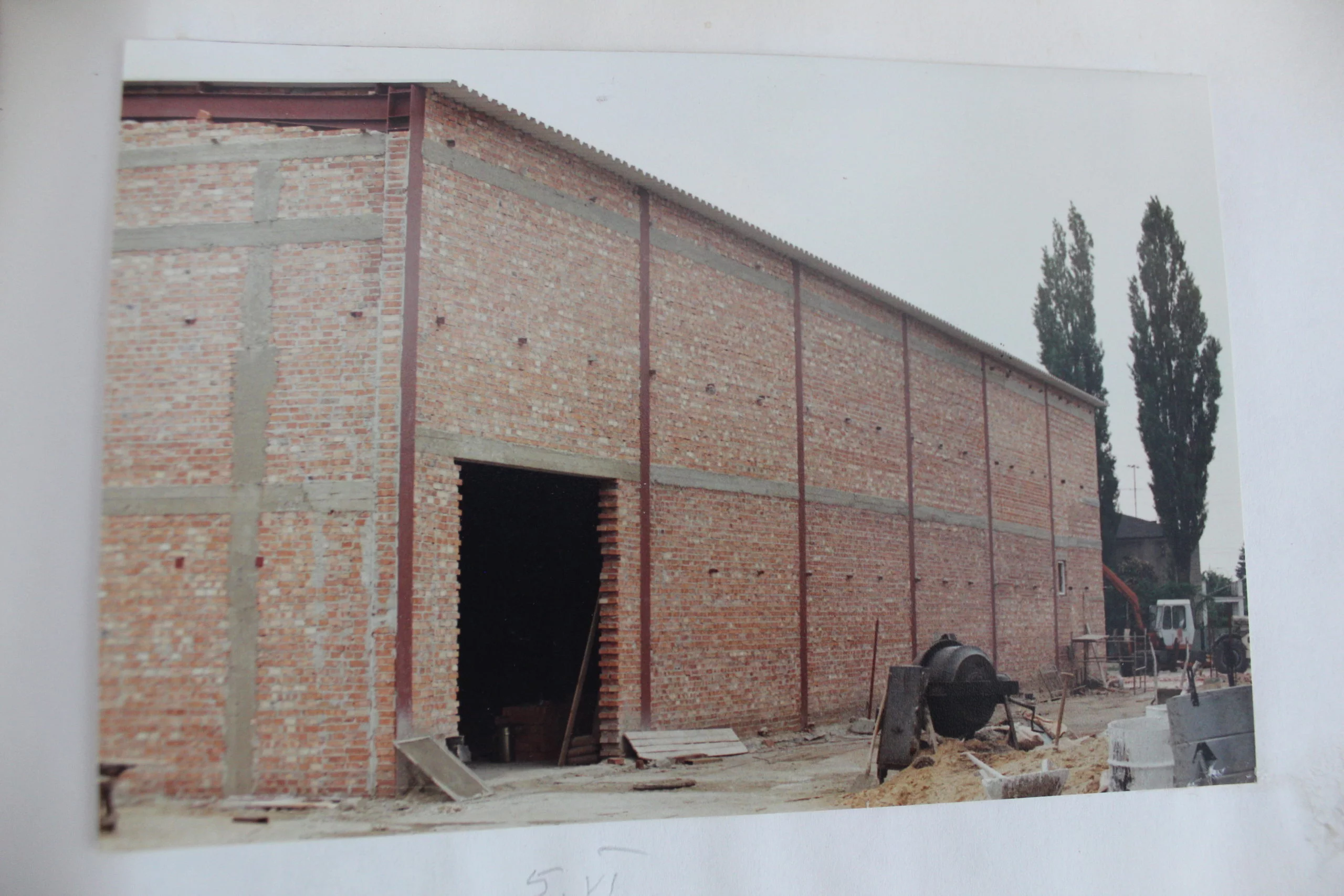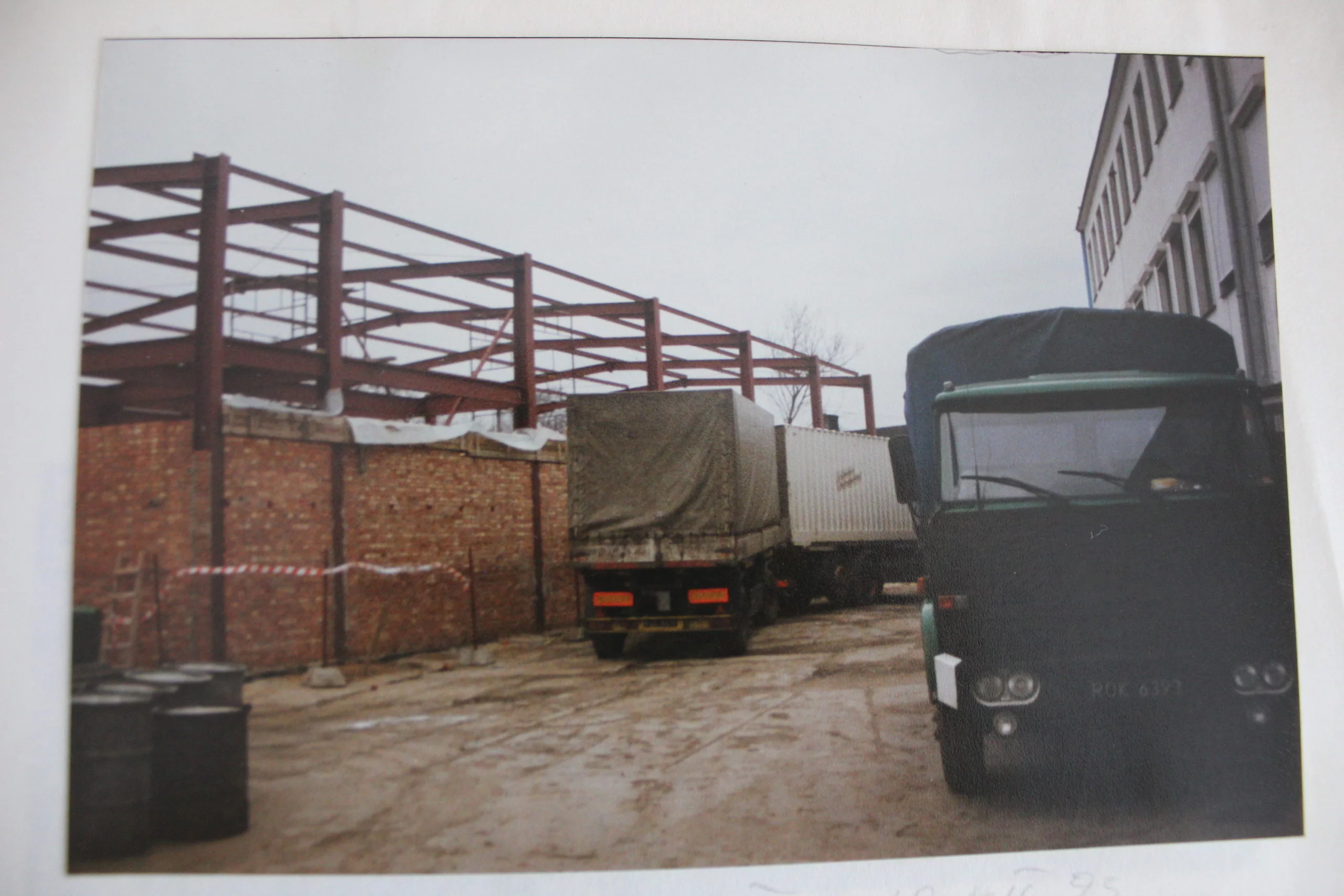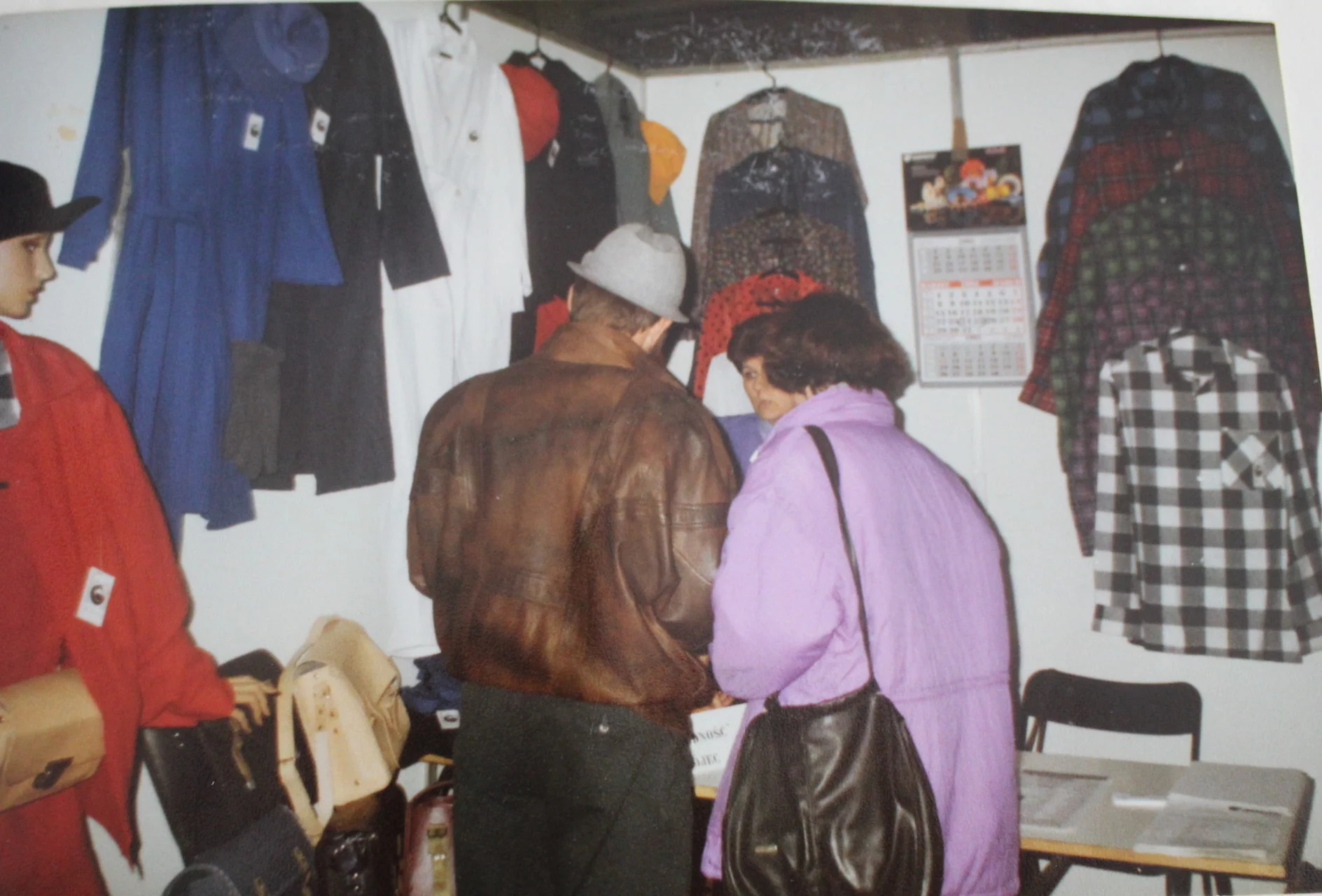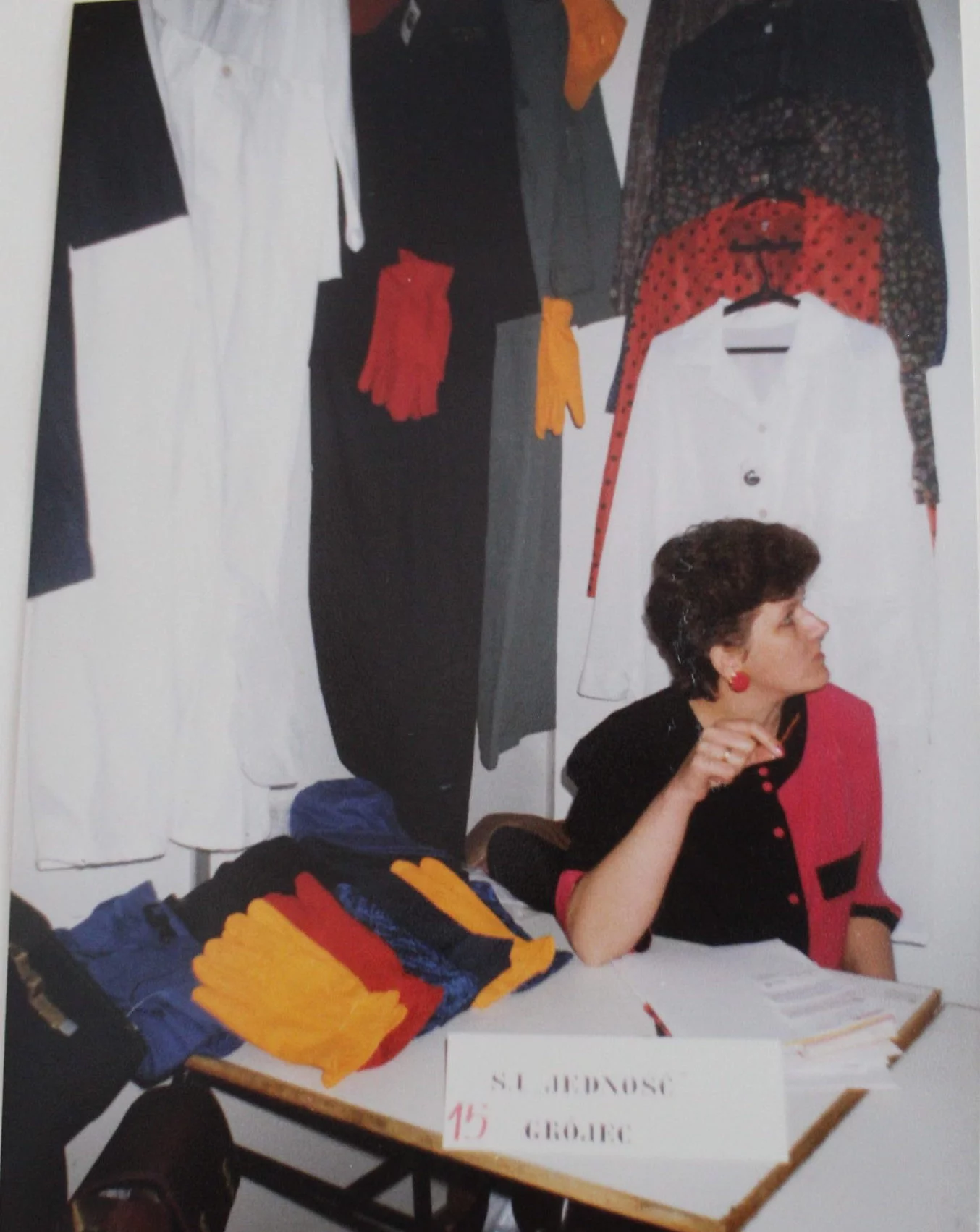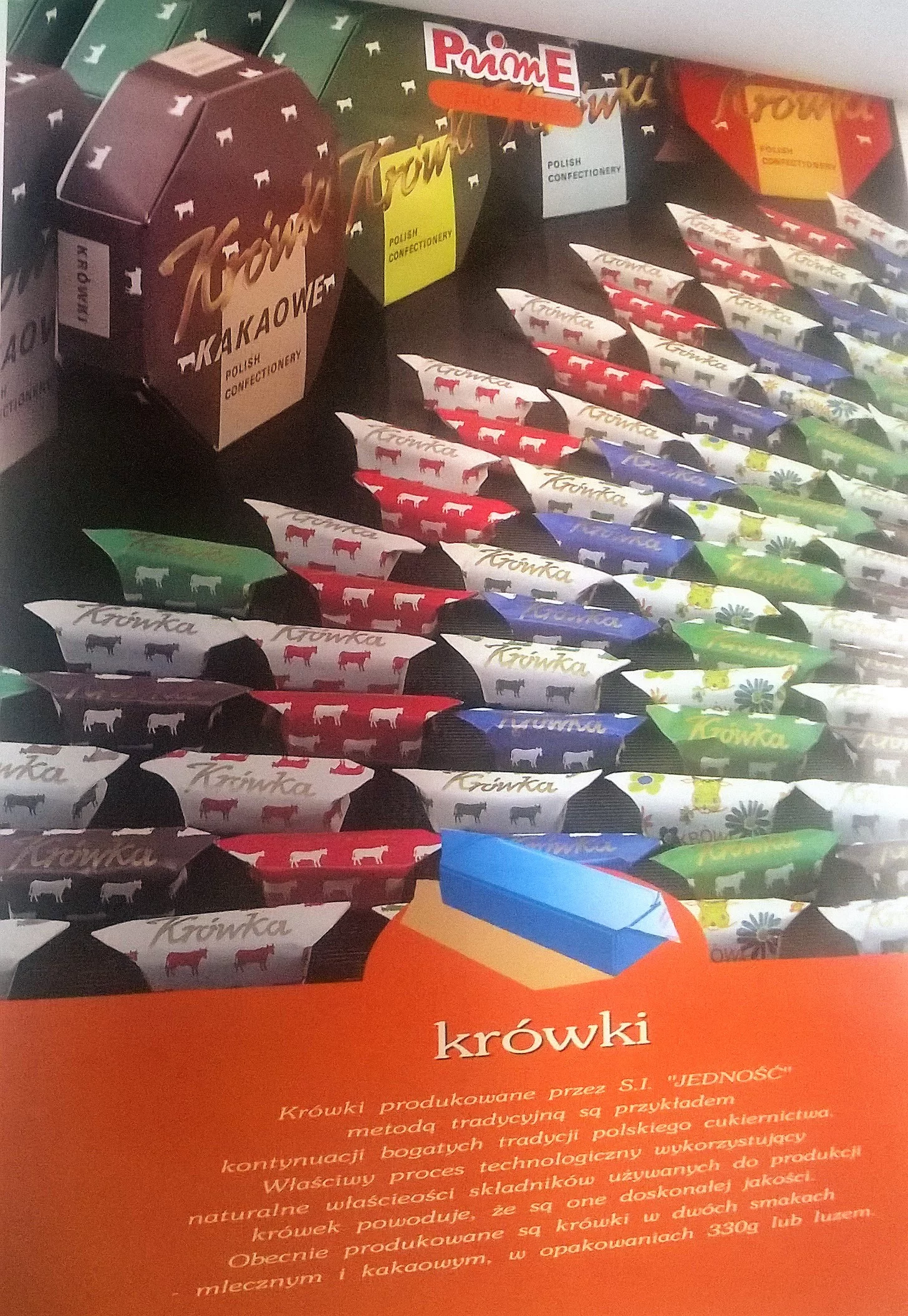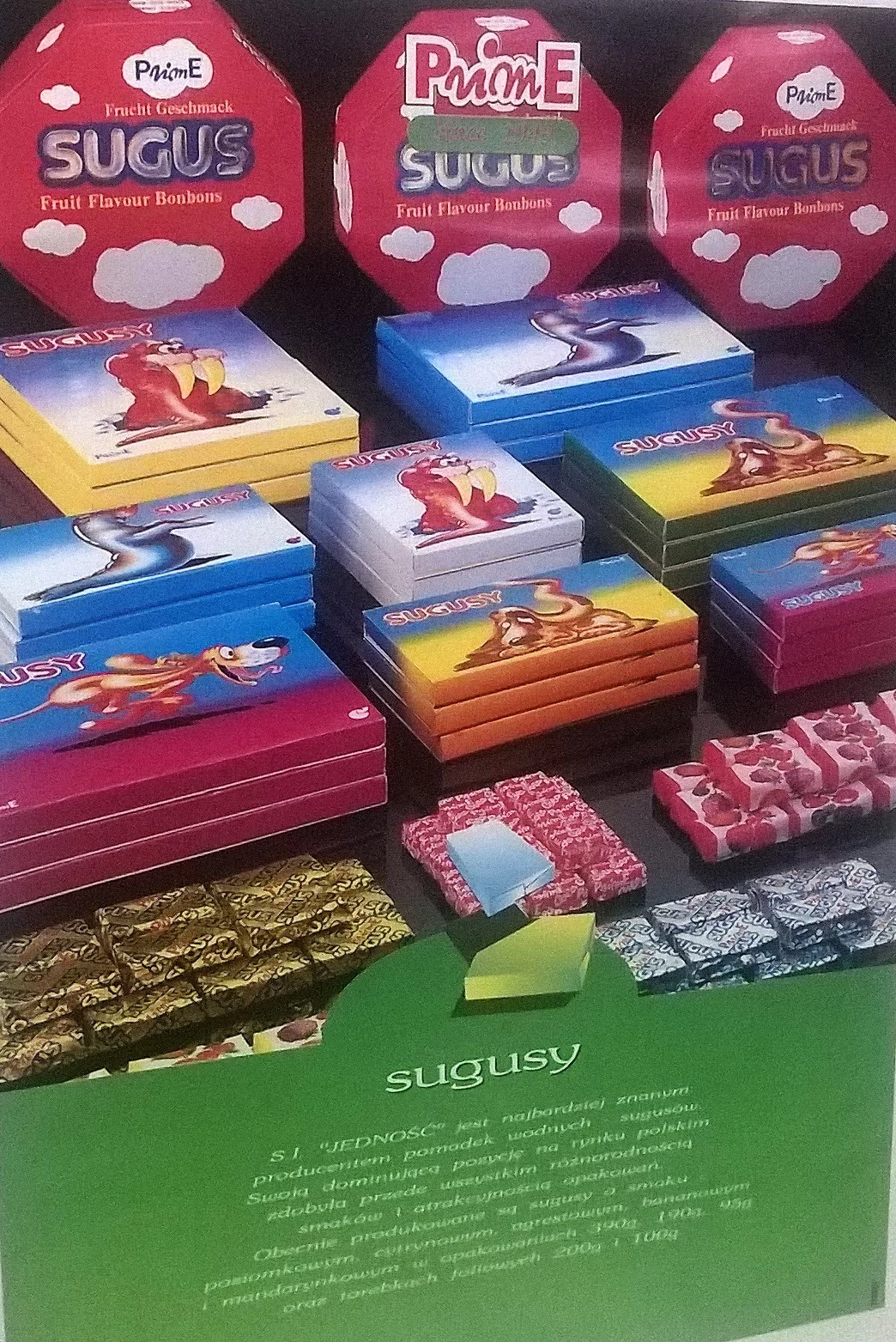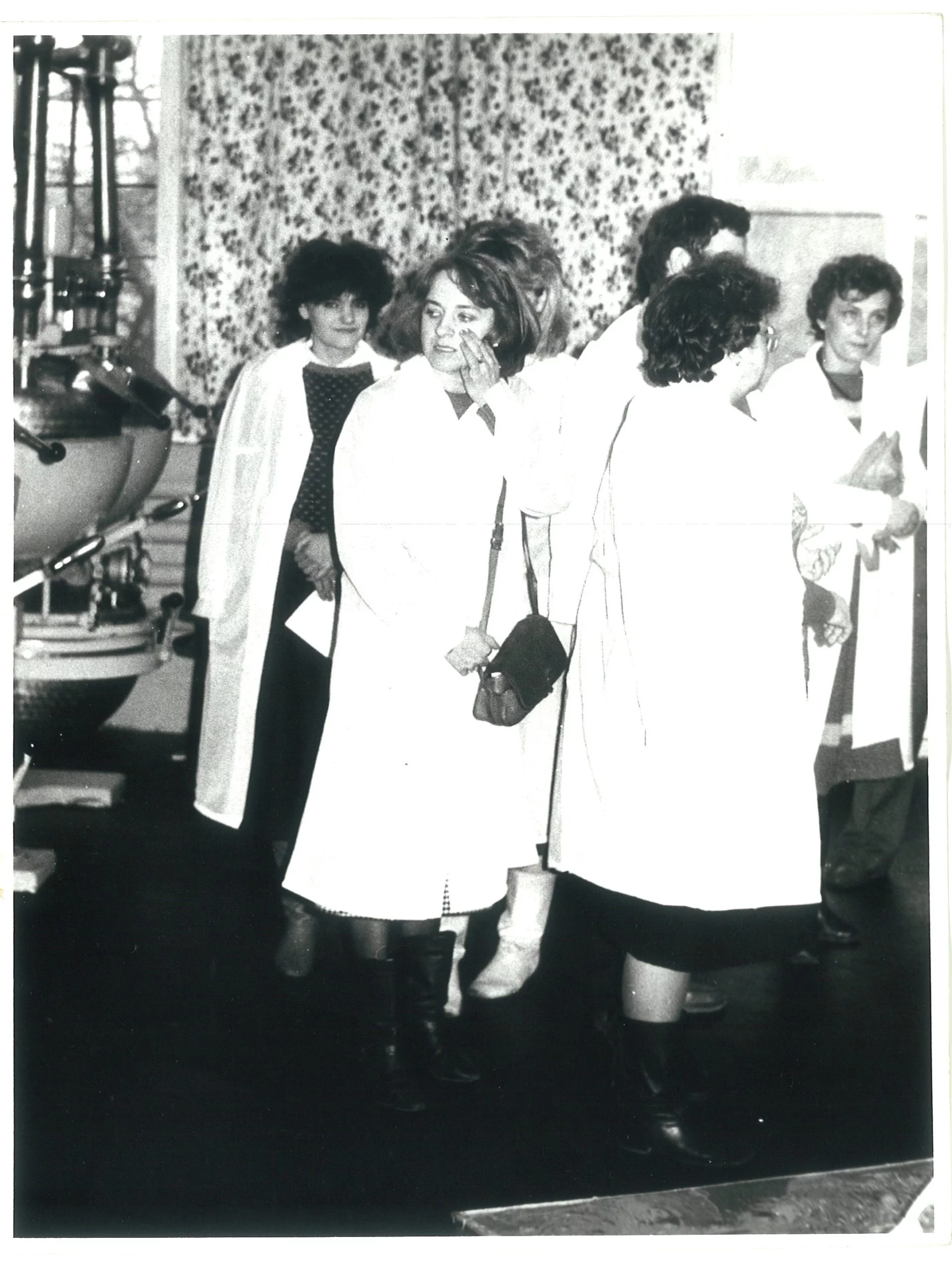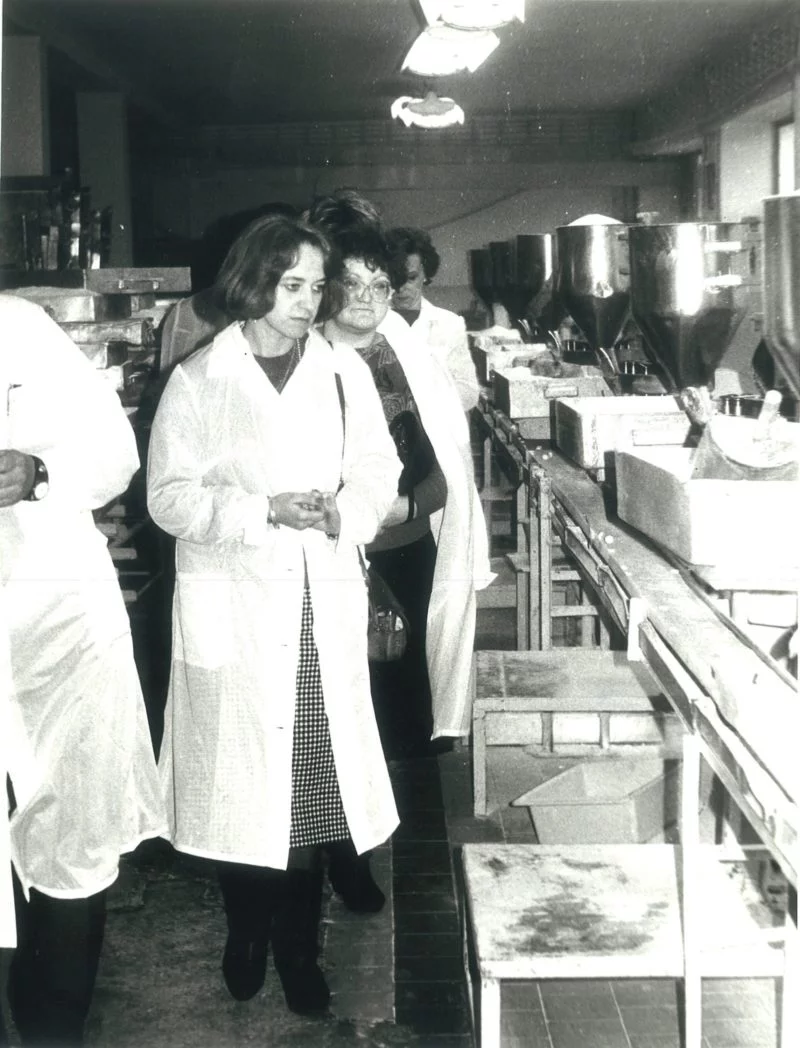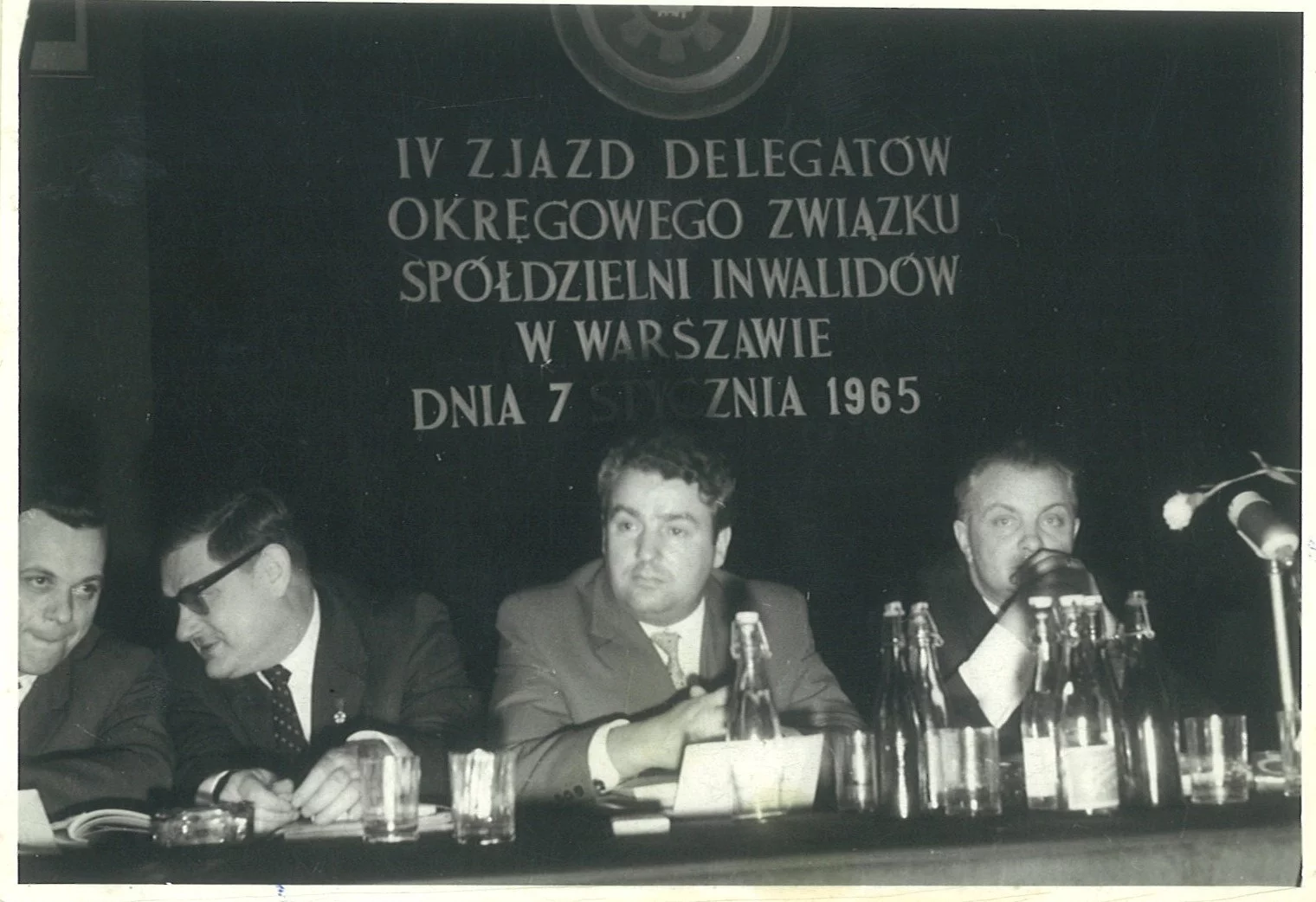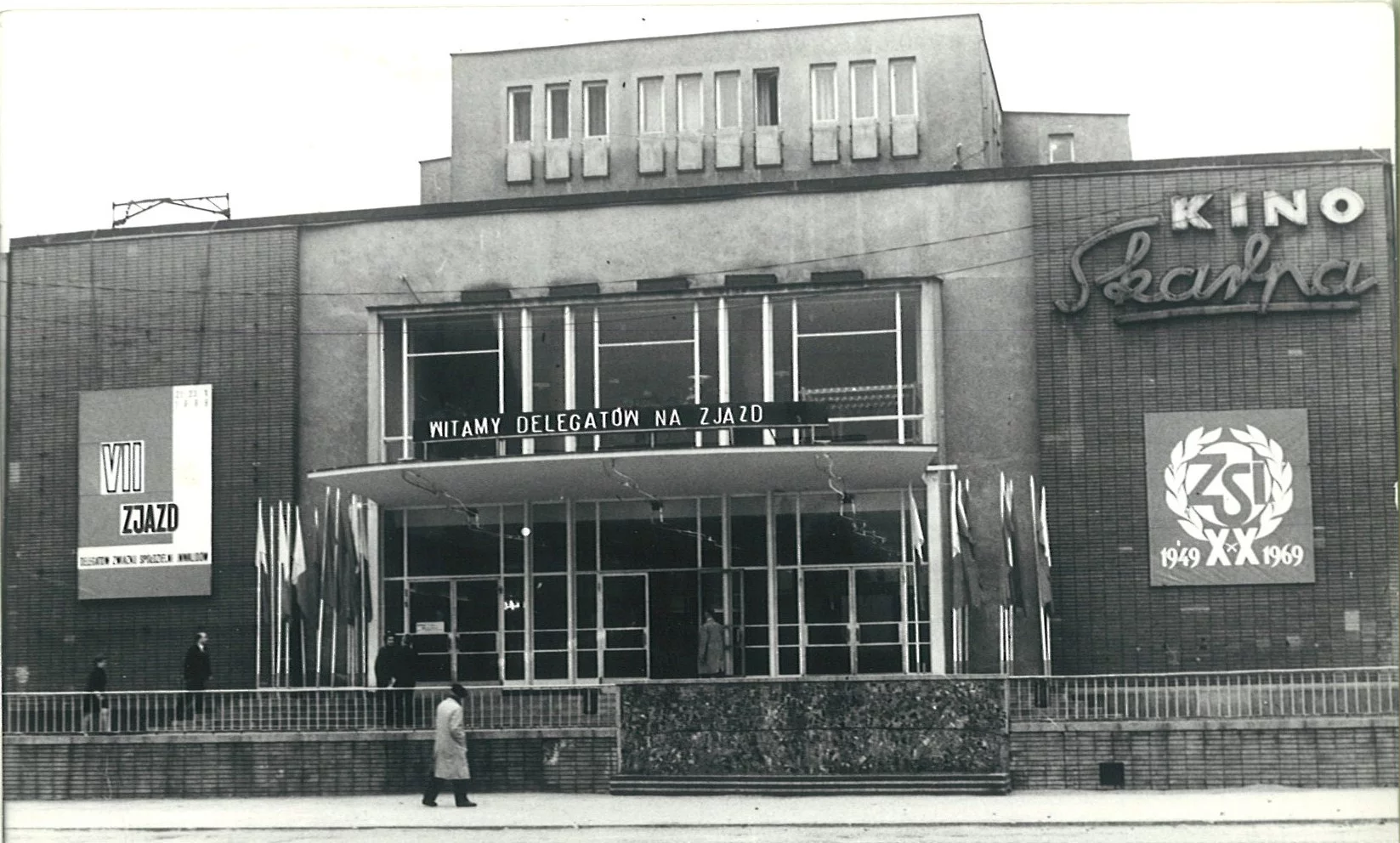2021–2025
Over the years of our operation, we have modernised our machinery and automated production processes.
Among our product innovations, we introduced BoDo soluble candies, combining new production technology and traditional moulding.
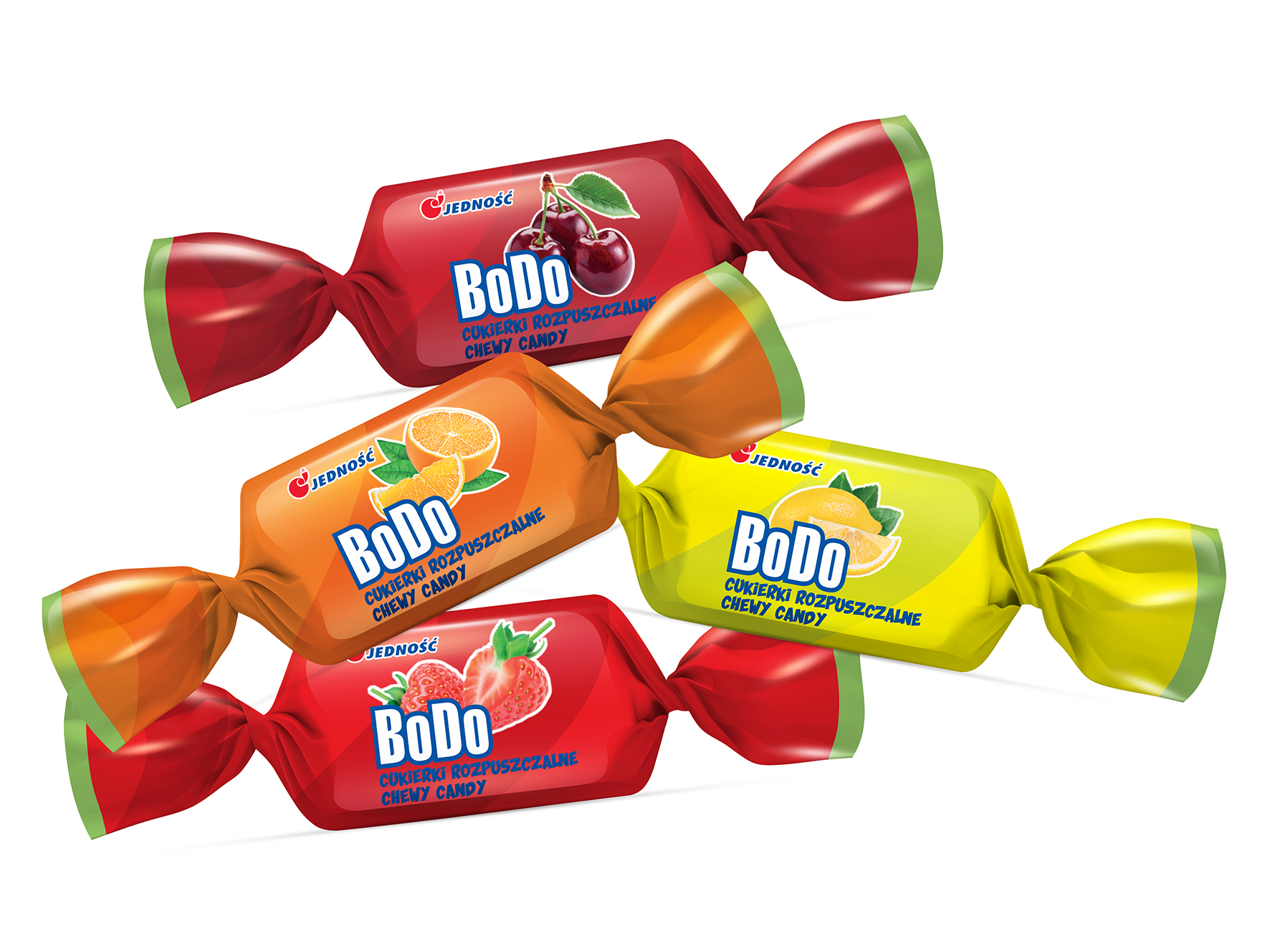
In 2024, the Cooperative celebrated its 75th anniversary.
The average length of employment in our Cooperative at the time was 23 years. The longest term of employment was 42 years. We had as many as 39 people in our company with 35 years or more years of employment. We received many good wishes and kind words.
We hope they all come true.
Thank you!
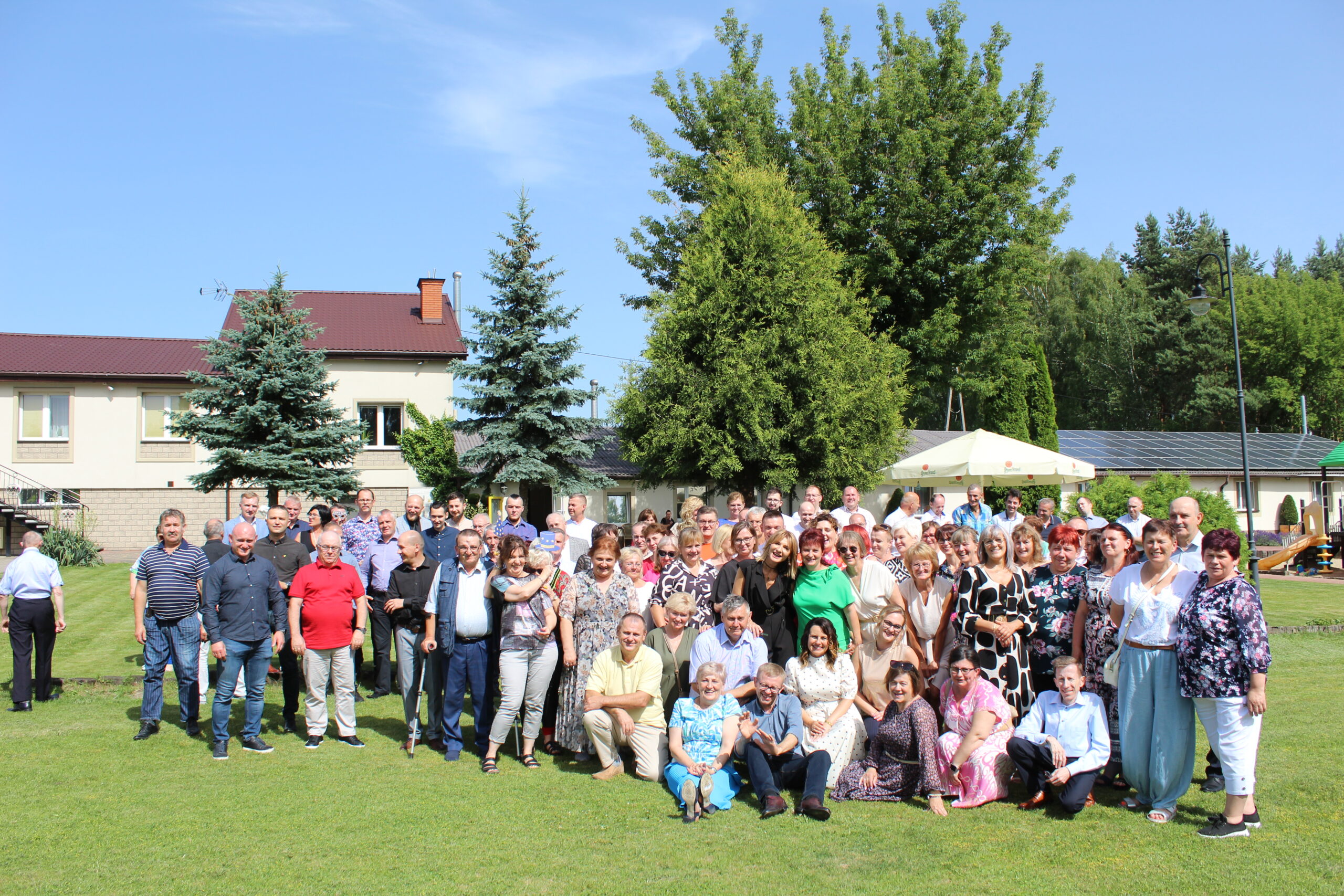
2016-2020
Product innovation and technological developments
In 2017, we launched hard candies without wrappers on the market. With these products, it was possible to reproduce and restart the Simionato packaging machine. A ‘Migap’ caramel moulding machine was purchased for the KHP line, adding new variants to the range of shapes: raspberry, lemon, flower and harp.
The following year 2018 brought further investment. A new caramel wrapper was purchased and put into operation on the APV line.
Modernisation and company image development
Between 2016-2019, we not only developed our machinery, but also modernised the entire plant. We carried out a major refurbishment of the reception area and the entrance to the office building. Continuous modernisation also includes production halls and warehouses. Our new electric pallet trucks make it easier for people with disabilities to do their work.
We also engage in marketing activities to improve our company’s image, which includes replacing and branding company cars, as well as refreshing existing ones and designing new packaging for our products.
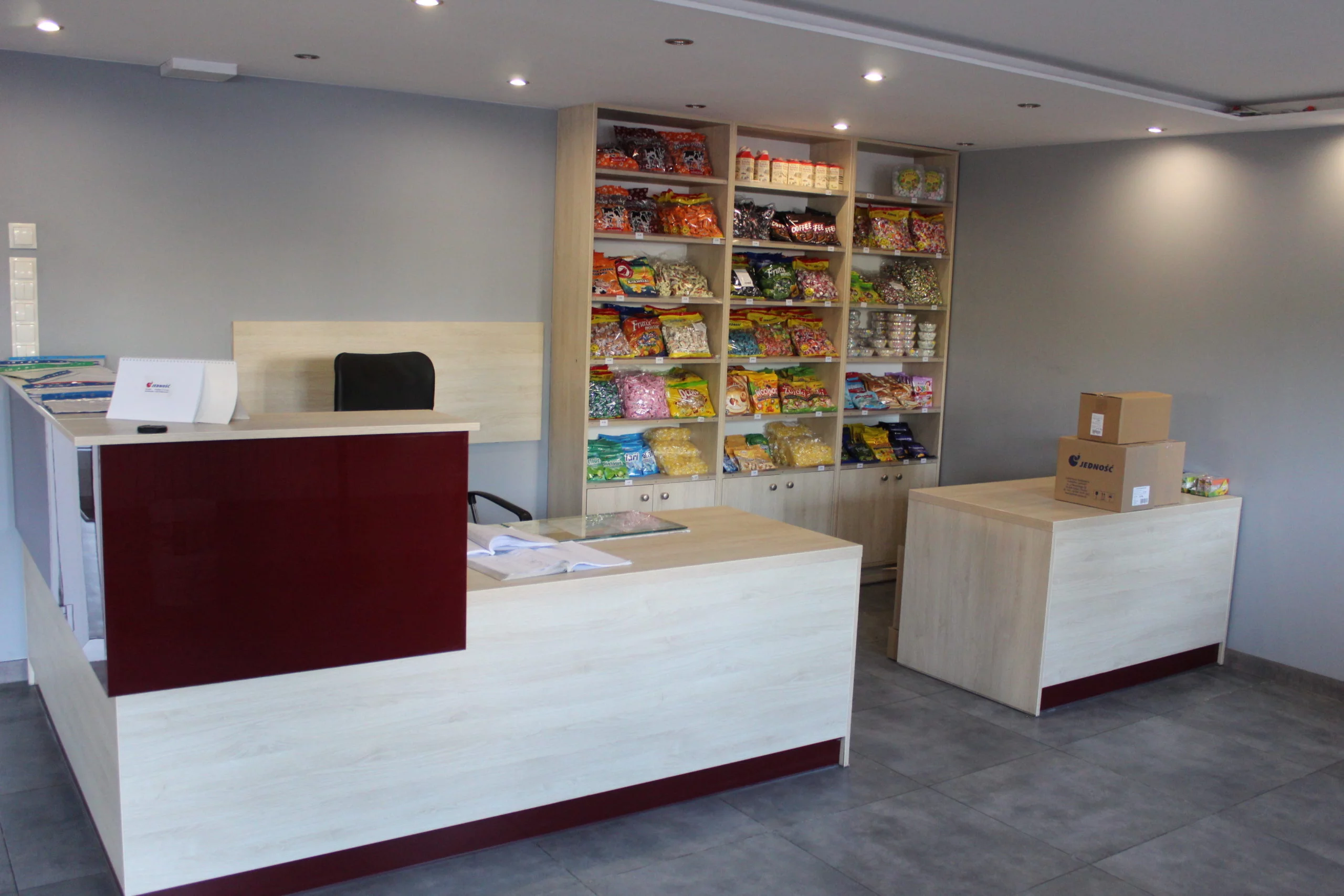
2010-2015
Challenges and changes after 2004
Throughout its history, our Cooperative has been taking special care of people with disabilities. The philosophy of our previous management and supervisory boards was focused on employing as many of such people as possible.
Changes to the legislation on funding for the employment of people with disabilities in 2004 deprived our Cooperative of significant resources, amounting to around PLN 2 million. Another unfavourable change that affected the Cooperative in the same year was a sharp increase in the prices of basic raw materials after Poland’s accession to the European Union, i.e. from 1 May 2004.
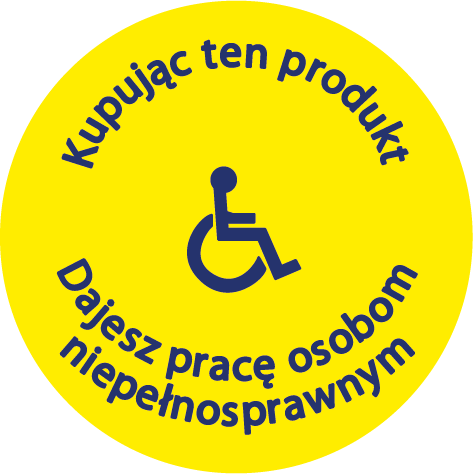
Prizes and awards
In subsequent years, “Jedność” Cooperative demonstrated the high quality of its products by winning numerous prizes and awards:
• “Best in Poland” – an accolade received in 2008 from the Hipolit Cegielski Society, Głos Wielkopolski, TVP Poznań Branch and Radio Merkury, along with right to use “Najlepsze w Polsce – THE BEST IN POLAND” emblem for our Toffee Candy.
• “Transparent Company” Certificate – awarded in 2008 for the publication of financial statements by Decide with Confidence in cooperation with Factor In, Forbes Bank and Bisnode.
• Silver Medal in the supported-employment enterprise category – awarded by the Chapter of the Mazovian Regional Stage for particular social sensitivity and responsible personnel policy, taking into account the needs of people with disabilities.
• 1st place in the Agri-food Industry category – in the 4th and 5th Grójec District ‘Company of the Year’ Competition 2007 and 2008.
Sales development and key partnerships
In the following years, the company grew its sales dynamically, establishing partnerships with new wholesalers and retail chains. Another milestone was the start of cooperation with Jeronimo Martins Poland in 2012. Thanks to increased orders, production got into full swing, which motivated Jedność to purchase a new weighing machine with a Stabilo packer from Innotech, designed for packing Owocelki – chewy sweets produced under Biedronka’s own label.
In 2015, we were able to expand the range for this client with UPS powdered candies. In order to improve efficiency, the ‘Małgośka’ packaging line was set up for automatic weighing and labelling of 120g pac
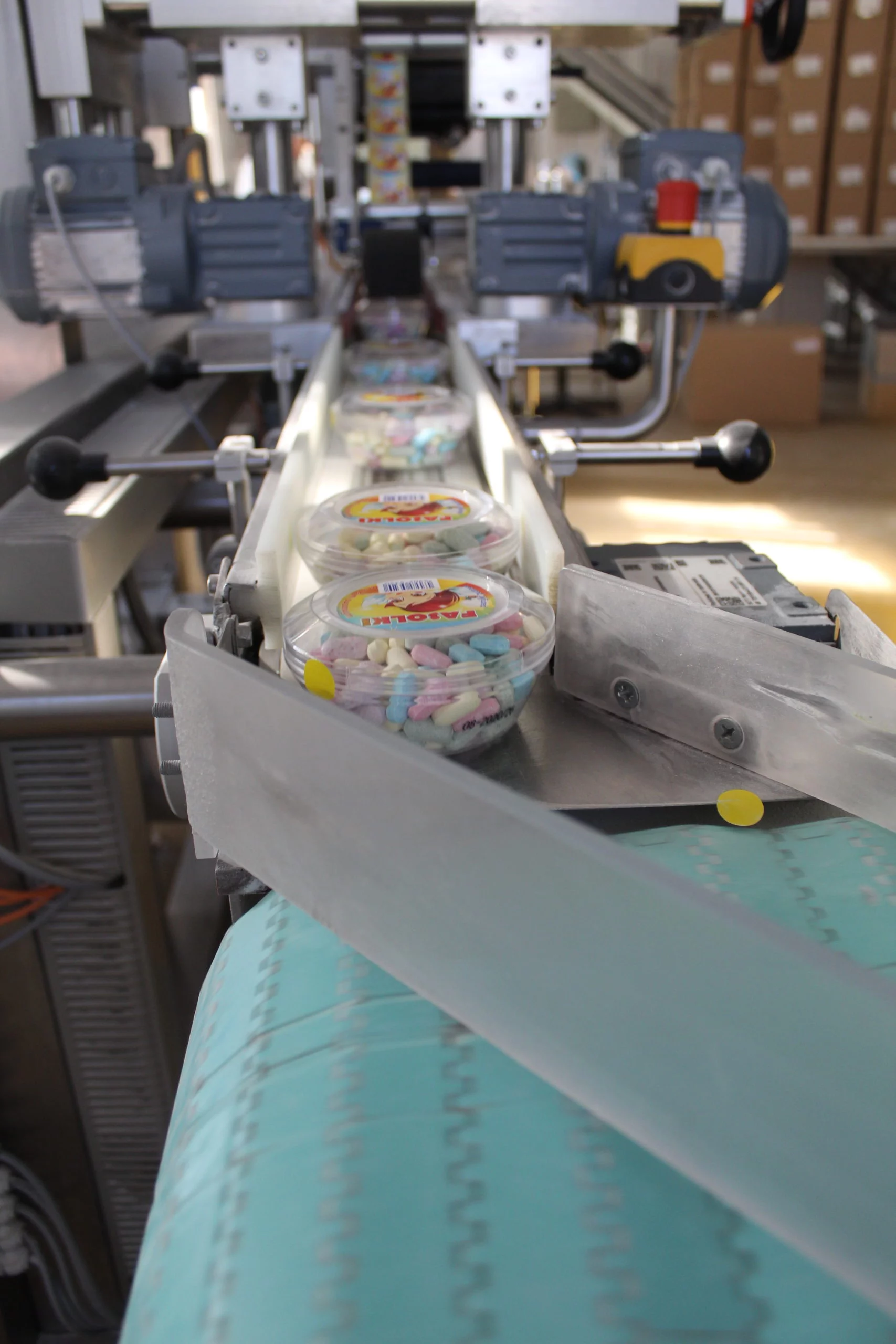
2000 - 2010
Modernisation and anniversaries
1999 and 2000 were a difficult time for Polish confectionery manufacturers, including CSI “Jedność”. The breakdown of the eastern market increased the supply of confectionery products on the domestic market. In response to these challenges, the Company modernised the plant and adapted it to quality and safety certification requirements in accordance with ISO 9001:2000 and HACCP. These measures allowed the Cooperative to maintain its position in the confectionery market.
In the years that followed, “Jedność” celebrated its 50th, 55th and 60th anniversary, highlighting its long history and continuous growth.
Innovation and technological development
In 2009, the company took part in the EU project called ‘Innovative Economy’. A concept for new, innovative filled chewy sweets was developed and the decision was taken to purchase a new process line. The project was highly rated by the Polish Agency for Enterprise Development (PARP), scoring the highest number of points. The investment was worth over PLN 12 million, of which more than PLN 7 million came from grants.
In October 2010, the first products from the new KHP line were launched: mint candies filled with Frutix Minti chocolate, as well as fizzy fruity sweets enriched with vitamin C: Frutix Musso.
At the beginning of 2011, the first chewy candies with Frutix Modern fruity liquid filling came off the line. Other new additions included chocolate-filled toffee, Tofiko Gold, Tofiko Party and Frutix Grand.
The ’90s
Challenges and development
The new economic situation in the country in 1990 caused great difficulties in all spheres of life. It brought a complete collapse of confectionery sales in the existing distribution channels, which led to the emergence of a new form of sales – door-to-door trading. This allowed the company to survive this difficult period.
The years 1991-1995 were a time of dynamic sales growth thanks to manufacturing investments. The company expanded its machinery to 7 drop rollers and began packaging powdered candies in various shapes and sizes. New products were introduced, such as dragées, and productivity was improved. In Q1 1993, a Simionato packaging machine from Italy was purchased and put into operation. An almost 100% increase in product sales led to the decision to build a warehouse for finished goods. In December 1995, a modern high-bay warehouse was put into use.
Decommissioning of a tailoring and leatherworking workshop
The progressive decline in the clothing industry resulted in the closure of a tailoring and leatherworking workshop, and the staff of the closed shop found employment in the confectionery plant. A few photographs of the collection from the 1990s have survived.
Technological development
In 1995, in order to meet market demand, a decision was taken to purchase a modern, computerised line for the production of caramels using the pouring manufacturing method. It was the only line of its kind in Poland, and the second in Europe. It was commissioned in 1998. A “Flow Pack” packaging machine was also added to the line. Production on the line resulted in a significant increase in sales, a better business position and further development and modernisation.
The ’80s
New areas of activity
In 1980, a new area of activity was launched: packaging imported goods, mainly tea.
In 1985, a new milk-based fondant production plant with highly-mechanised production processes was opened.
Record employment figures and transformation
In 1988, employment reached a record high in the Cooperative’s history with 619 staff members. 1989 brought socio-political changes, which affected all of the company’s activities.
The Cooperative is celebrating its 40th anniversary this year.

The ’60s
Production development and expansion into the international market
A confectionery production plant was launched, as well as a food production plant, producing strawberry and currant pulp for export. Further sales points were also launched in the same year, making a total of 22. In 1959, the Company employed 139 people, including 120 disabled persons.
In 1966, the Company recorded further growth. Fruit and vegetable production for export prospered, and the Company opened a beer bottling plant and a sparkling water manufacturing plant. In addition, the fondant production plant began operation. Employment increased to 265 people.
In 1968, the Cooperative started exporting its products.
21 sierpnia 1949 r.
Beginnings of “Jedność”
The official date of establishment of “Jedność” was the day of the founders’ general meeting. The first plant was a basket-making shop, where wicker products were made. A shoemaker’s shop and a tailor’s shop were also opened between 1949 and 1950.
In 1952, the Company employed 75 people, including 75% disabled persons. In 1953, it launched commercial activities with the opening of two grocery shops. Employment increased to 98 people. In 1959, the Company recorded further growth.

